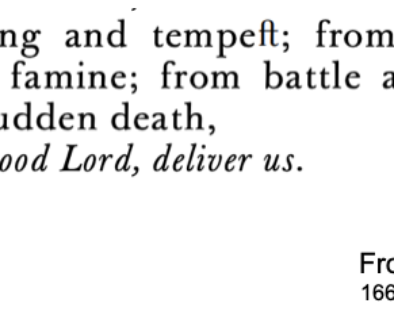We can trust it.
On Sunday we talked about the goodness of the law. The Apostle Paul instructs Timothy to tether himself to what is rooted, true, and not going anywhere. That when faced with the temptation for endless speculation and vain discussions, choose to anchor yourself to what is true and good and leads to life.
We all know what it’s like to be asked a tough question– where the answer may not be well received. And our temptation is to speculate– to make something up; or to shave a little off what is true; or to say things that the person wants to hear so they will like you.
In contrast to those temptations, Paul urges Timothy to tether himself to the law. In the 1500’s, Martin Luther wrote about why the law is good. He gave three reasons:
- The law is a means to preserve society. It restrains us from evil.
- The law is a summons to repentance and faith. It exposes the gulf between who we are and who we want to be. So it leads people to Christ.
-
The law provides a direction for the church. It’s a teaching tool that guides people who are trying to be more like Jesus as they follow Him.
If you read 1 Timothy 1: 8-11, you will see that there are both difficult and controversial things that are labeled as ‘lawless and disobedient.’ And when we read challenging instruction about our behavior and choices, we need to be confident that these are the things that God really wants us to do.
The question comes up– can we trust the Bible? Can we trust that these boundaries that are laid out in verses 8-11 are the boundaries in which God really wants us to live? And the answer is: Absolutely.
We may not like what the Bible says, but we can trust that those things we don’t like are the things that Jesus said and that God wanted us to know. Here is why…
1. The Gospels were written 35 years after the events. There were people who were still alive who could say yes, Jesus really did that and he really said that. Matthew and John were actual apostles, eye witnesses to the things they saw. No other historical source from antiquity can say that.
2. Externally, there are historians that we lean on to understand what was happening in the Roman empire— Pliny, Tacitus, Josephus. And they talked about Jesus and the impact his followers had on the Roman Empire.
You can see more about both of these points in a video by an Anglican priest named Vaughan Roberts who helped develop the curriculum for one of our small groups, Christianity Explored.
3. We believe that the Bible is inspired by God’s Holy Spirit and written in the personality and personhood of the author. God was writing through the pen of real humans. It is everything He wanted to reveal about himself and He did it through people like us.
4. We believe that the Bible is without error. This means that when interpreted correctly, the Bible is never wrong. Everything in the Bible is true. If we deny this, we become the final authority, we wander into speculation and vain discussion.
If you want to read more about inspiration and inerrancy, you can go here.
A very concise resource that has just come out is this small book by Kevin DeYoung called, Taking God at His Word. It was Kevin who provided the helpful acronym, SCAN (in this interview) to help us summarize what we believe about the Bible.
The Bible is SUFFICIENT: it tells us all we need for life and godliness.
The Bible is CLEAR: the essential truths about God and salvation can be understood, applied, and obeyed.
The Bible is AUTHORITATIVE: it always gets the last word. We can trust it.
The Bible is NECESSARY: we cannot savingly know God without it.
That’s it. The Law is good and we can trust the good boundaries that the Bible presents. Thanks be to God!
-David

